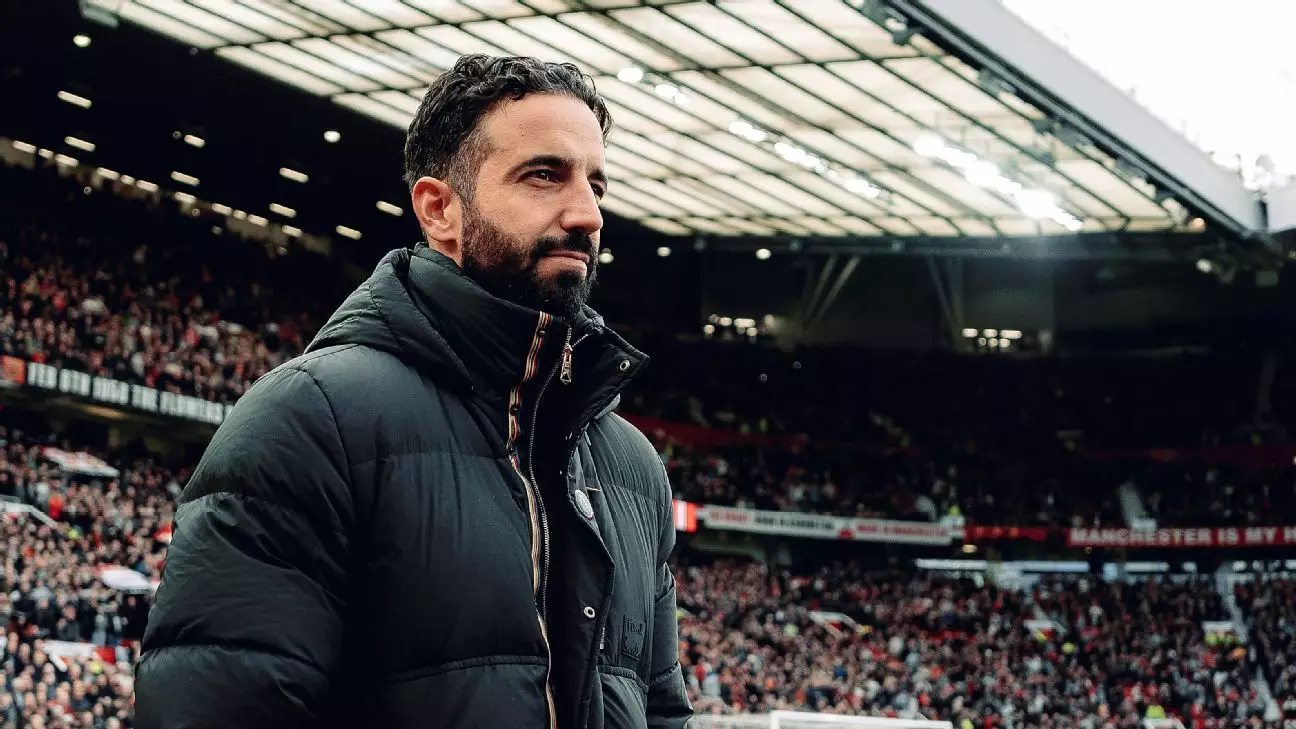Ruben Amorim’s first arrival at Carrington was marked by uncharacteristically bright November weather, setting a hopeful tone for his transition to Manchester United. However, the optimism quickly faded as he officially stepped into the head coach role amidst an array of challenges. Having replaced Erik ten Hag, Amorim entered an environment already fraught with tension, resulting from the previous manager’s tumultuous tenure. His initial weeks have underscored the stark reality of coaching one of the world’s most prominent clubs, especially as the atmosphere dimmed with the arrival of winter conditions.
Amorim’s first month in charge has not provided the honeymoon period typically expected in such high-profile appointments. Not only did he experience an emotional rollercoaster marked by two wins, two losses, and a draw, but he also had to navigate personnel changes, including the swift departure of sporting director Dan Ashworth, and tackle complex off-field issues like ticket price hikes and the contentious LGBTQ+ initiative that threatened to divide his squad. These challenges converge to create a perception that the lusitanian tactician is engulfed in a storm even as he attempts to steer the ship.
Strategic Adaptations in Coaching Style
Amorim’s approach to coaching reflects an acute awareness of the limitations posed by a midseason transition. With limited time to instill his philosophy, he has shifted towards team-oriented tactics, emphasizing collective decision-making over individualized instructions. He has opted for extended sessions focused on player positioning, which evidently marks a departure from the methods employed by his predecessors.
His non-traditional stance of allowing players to conduct their own debriefs post-match signifies a desire to foster a culture of accountability and mutual support. By avoiding lengthy half-time speeches, he places trust in his players, bolstering their confidence rather than dampening spirits with pressure-laden discussions. However, it remains to be seen if this bottom-up approach will yield positive long-term results, especially within a squad grappling with confidence issues.
Building Relationships and Team Cohesion
One of the hallmarks of Amorim’s coaching style is his emphasis on establishing strong relationships with players. Though he embodies a young and charismatic presence, there is an underlying resolve within him; he seeks to cultivate a bond of trust and respect. His unique method of connecting with players, even incorporating a light-hearted initiation for returning injured players, illustrates his commitment to fostering a supportive environment. However, Amorim must balance this affable demeanor with the authority required to enforce discipline, an aspect highlighted by his disappointment when substitutes fail to be ready upon his signal.
The squad’s unity is particularly vital in the face of recent controversies. By embracing the players’ collective decision to stand against certain initiatives that conflict with individual beliefs, Amorim is nurturing an atmosphere of solidarity—a necessary quality amid heightened scrutiny from media and fans alike. Yet, one might query whether such moves will strengthen the team’s bond or deepen divisions that may resonate through the season.
Another harbinger of turmoil for Amorim comes in the form of a rigorous December schedule, where United faces an impressive nine matches across various competitions. Managing player fitness during this grueling period is critical to both performance and morale, a lesson learned from the physical toll felt under Ten Hag. Amorim’s strategic reliance on performance data showcases a modern approach to player management, aiming both to maximize energy and minimize injury.
However, there is an inherent risk in tackling a packed fixture list while striving to enhance team dynamics and culture. As Amorim navigates the challenges of unfamiliarity with the English football calendar and the intricacies of the Premier League, the pressure magnifies. His unique challenge is to harmonize the tactical aspects of training with the pressing demands of upcoming matches, a skill he must master swiftly if he is to reverse United’s underwhelming trajectory.
Despite the early hurdles Amorim faces, the resolve and ambition he conveys serve as a beacon of hope for Manchester United supporters. Upcoming fixtures, particularly the confrontations against struggling teams such as Wolverhampton Wanderers, present vital opportunities for Amorim to secure essential victories to rebuild team morale. With a clear intent to reshape the club’s fortunes, Amorim’s path forward is as critical as it is precarious.
As he acclimatizes to his new role, Amorim embodies the paradox of being both a figure of change and a product of persistence, navigating the whirlwind of managerial expectation while attempting to foster an essence of maturity and development within the squad. Should he succeed in this challenging environment, there exists a genuine potential for him to imprint his vision on a club that has been yearning for consistency and nurtured growth. The upcoming months will be telling—Amorim’s commitment and leadership will undoubtedly shape the future narrative of Manchester United.

